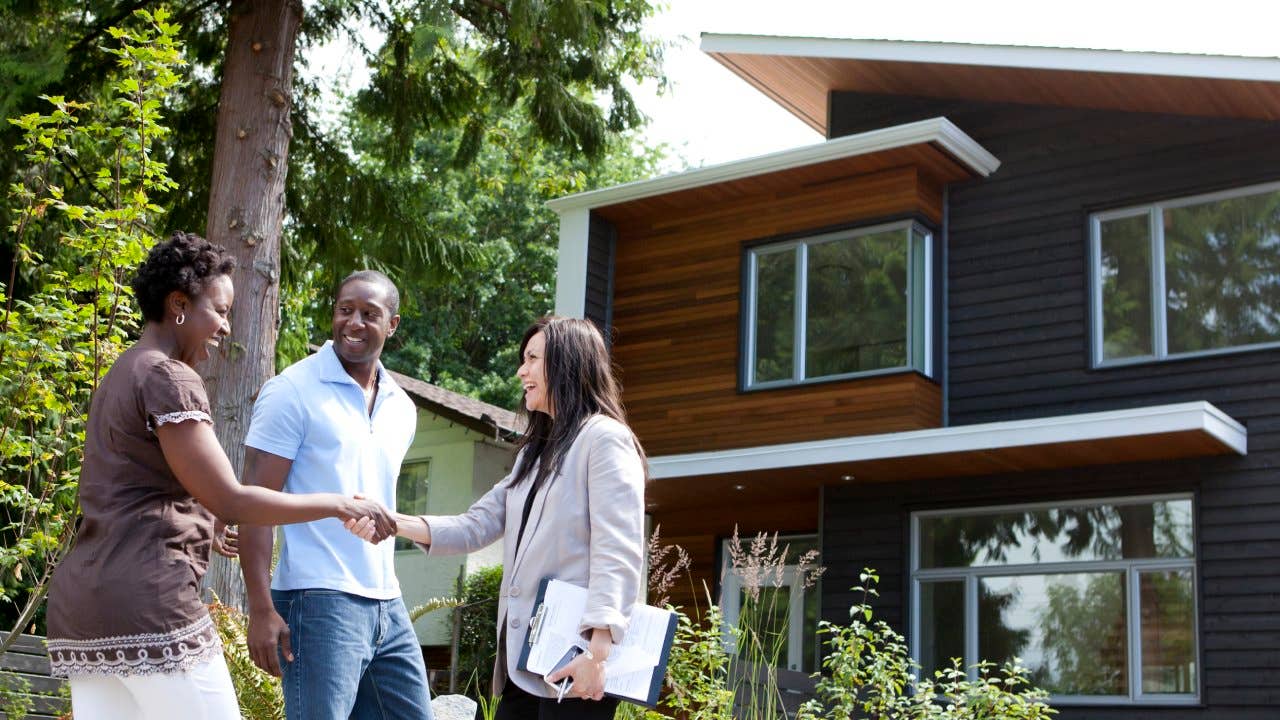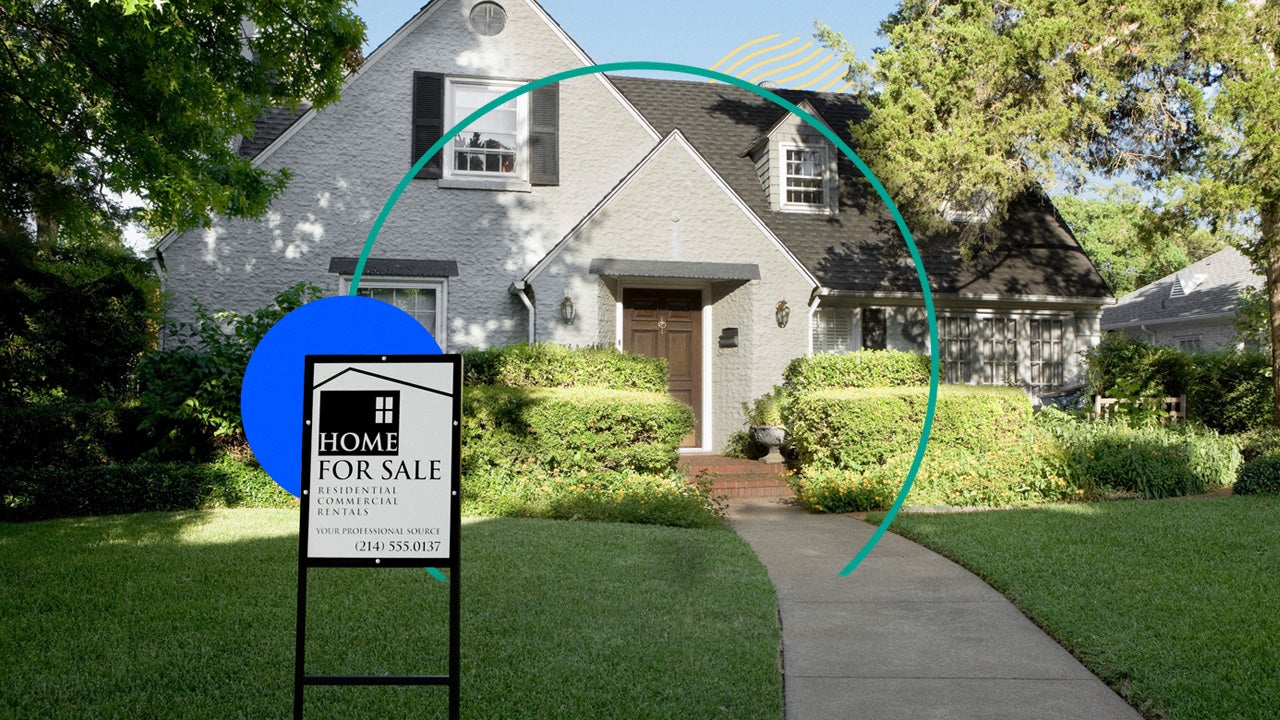How to buy a new house before selling yours

Key takeaways
- It’s possible to buy a new house before selling your current one, but getting the timing right can be tricky.
- If the transactions don’t align perfectly, you could wind up needing temporary housing — or carrying two mortgages.
- Working with an experienced agent and inserting the right contingencies into your contract can help.
In a perfect world, the sale of your old home would align precisely with the purchase of your new one. But real estate transactions are often a little messy, and the timing isn’t guaranteed to line up perfectly. You might end up selling your existing home — and having to move out — before you find a new one, leaving you with the expense and hassle of finding temporary housing. This scenario might have you wondering: Should I buy my next home first, before selling my old one? Let’s explore the pros and cons of this convenient but potentially expensive prospect.
Can I buy a new house before I sell mine?
Yes. It’s possible, but it’s a delicate dance — here are some potential strategies that can help make everything align:
- Work with an experienced local agent: A real estate agent who knows your local market inside-out will also have a pro understanding of what can (or can’t) be expedited. They can manage the transaction timeline to help things fall into place.
- Put a contingency in your contract: A sale contingency is a contractual clause stating that the purchase of your new home is contingent upon the sale of your old one. If the contingency is not met — ie, if your home does not sell within the agreed-upon time frame — the deal could fall through. While these clauses are fairly common, they can be tricky in a competitive market: If another offer comes through that is not contingent, the seller may well prefer that buyer over you.
- Ask for a delayed closing: If the sellers of your new home are willing, putting off the closing slightly may help better align the sale of your old home with the purchase of the new one. You could potentially offer something in exchange, such as paying some additional closing costs — talk with your agent about the best negotiation tactics.
- Strike a rent-back agreement: In this type of arrangement, the buyer agrees to rent the property back to the seller after they take possession, for set amount of time. This allows the seller to stay in their home temporarily, paying rent to the new owner, while they prepare to move out.
- Get a bridge loan: A bridge loan is a short-term loan that can cover the gap between purchasing a new home and selling your old one until you’ve secured permanent financing. “With a bridge loan in hand, you can make a home purchase offer that’s not contingent on selling your current home,” says Sean Simon, mortgage loan originator at Planet Home Lending in Colorado. “That will appeal to sellers who don’t want their home sale to stall while they wait for the buyer’s home to sell.” One caveat: These loans generally come with short terms, and interest rates may be higher than what you’d see with a mortgage.
Pros and cons of buying a new house before selling your old one
While buying a house before selling your old one isn’t likely to be financially ideal, it can be useful in many ways. Here are some of the advantages and disadvantages that come with this scenario.
Pros
- Housing security: If your old home sells quickly, you won’t be left without a roof over your head.
- Less hassle: With a new home ready and waiting, you won’t need to worry about interim housing, furniture storage costs or having to move twice.
- Speed: If you see a home for sale that you like, not having to wait for your previous house to sell first lets you move quickly to make an offer ASAP.
- No stressful showings: Showing a home while you’re still living in it can be very messy, especially if you have children or pets — if you’ve already moved out, you can avoid that stress.
Cons
- Less liquidity: Most sellers use the proceeds from the home sale to put toward the purchase of their new place. Without those liquid funds available, affording a second home purchase could be a significant challenge.
- Two mortgage payments: Even if you are able to make the purchase, doubling up on monthly mortgage payments might stretch your budget very thin. And the expenses of running two households, like utility bills and everyday maintenance, can also add up.
- Draining your savings: If selling your existing home takes longer than you expected, or you don’t get as high a price as you thought you would, your savings could be depleted.
Alternatives
Buying a home before selling yours is tricky, to be sure. It’s no wonder real estate attorney Christa Kenin, who is also an agent with Douglas Elliman in New York and Connecticut, does not advise it: “Strongly consider selling your first home before buying a second home,” she says. “Unless you are prepared to carry two homes, sell your first home at a discount, or you don’t need funds from your first home to purchase your second home, this makes the most sense from a financial standpoint.”
Luckily, there are alternatives to consider. For starters, some companies actually specialize in helping you buy a home before selling your current one, and have specific programs to help you do so, including Flyhomes, Orchard and Knock.
You could also think about renting your old home instead of putting it up for sale — the steady monthly rental income could be used to offset the cost of your new property.
In addition, you might look into selling to an iBuyer or another kind of cash-homebuying company that operates in your area. These businesses buy directly from the homeowner, making quick cash offers and closing extremely quickly. This gives you an infusion of cash to put toward your next purchase without having to wait around for the right buyer to come along. Keep in mind, though, that you’re not likely to earn top dollar for your home if you go this route.
Why we ask for feedback Your feedback helps us improve our content and services. It takes less than a minute to complete.
Your responses are anonymous and will only be used for improving our website.
You may also like

How to insure a van you live in


How to buy a house for sale by owner




